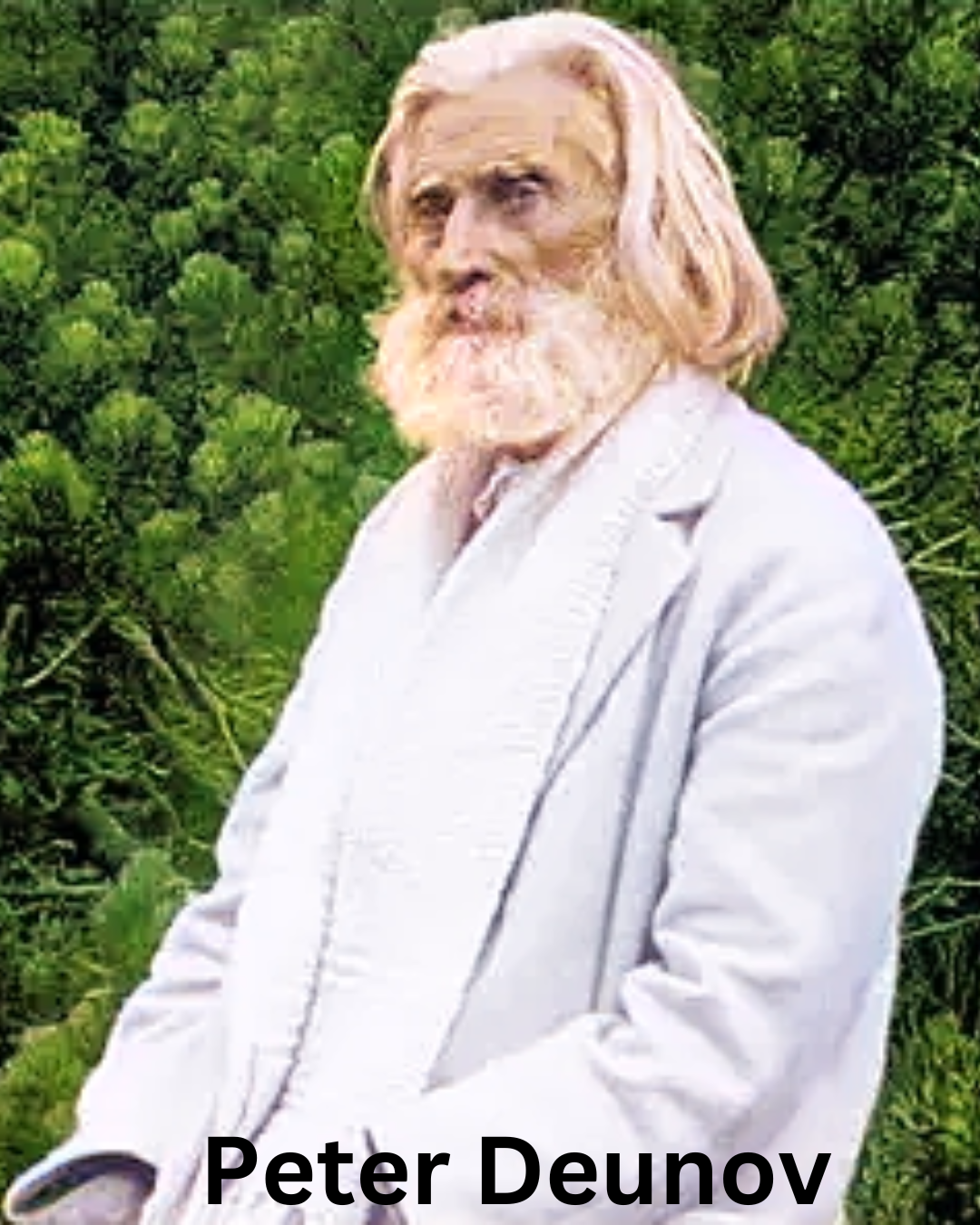1. If You Are Depressed, You Are Living In The Past. If You Are Anxious, You Are Living In The Future. If You Are At Peace, You Are Living In The Present (Lao Tzu)
Worrying about the past can indeed be unproductive in many cases. The past is something that has already happened and cannot be changed. Spending excessive time and energy dwelling on past events or mistakes can prevent us from moving forward and focusing on the present. It can also lead to unnecessary stress, anxiety, and regret.
Worrying about the past can definitely be unproductive in many cases. The past is something that has already happened and cannot be undone. Spending excessive time and energy dwelling on past events or mistakes can prevent us from moving forward and focusing on the present (this moment). It can also lead to unnecessary stress, anxiety, and regret.
Living in the moment is a wonderful mindset that can bring many benefits to your life. It means being fully focused on the present moment rather than dwelling on the past or worrying about the future.
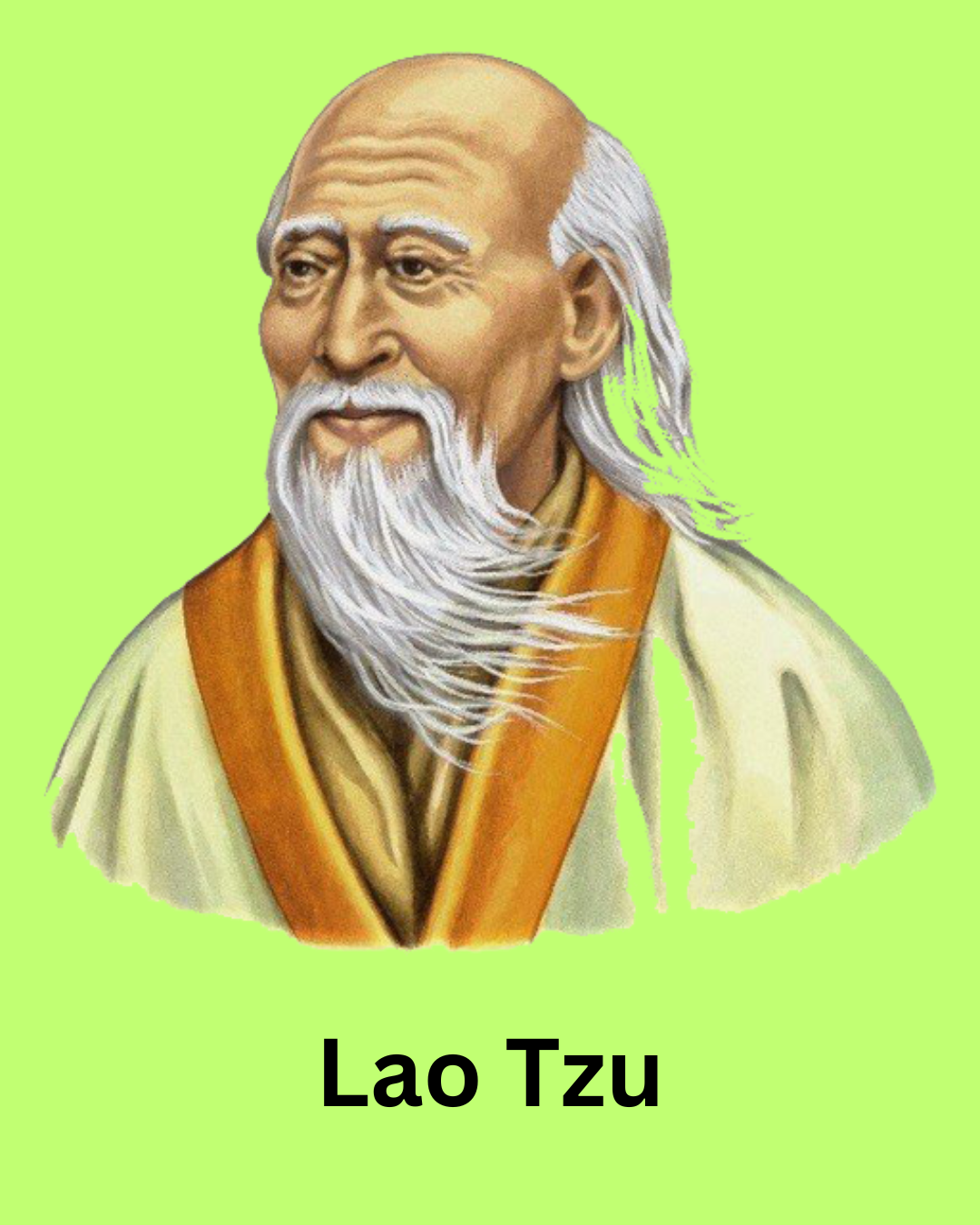
2. An Eye For An Eye Will Only Make The Whole World Blind (Mahatma Gandhi)
It is about revenge. Gandhi was warning people against seeking revenge against those who have done something wrong to someone. He expresses the virtue of forgiveness. Keep this in mind, its forgiveness and not forgetfulness.
The concept of an eye for an eye is based on Abrahamic mythology. Judaism, Islam, and Christianity to some extent describe a retributive sense of justice.
Indian religious tradition, on the other hand, is about duty. Here the nature of justice depends on your duty. Justice You may have to forgive, give up, take revenge, seek justice from some higher authority. The Indian sense of the idea of justice is not rigid. It is not absolute.
Gandhi in the context of his times saw retribution as a terrible thing. Violence begets violence. It creates a vicious circle and in the end there is no Justice.
Think like this, two people fight. One of them gets a fractured arm and is in hospital. Next day, the injured guy’s friend come and beat up the other guy. Next the cycle of violence repeats until everyone involved is in the Hospital.

3. Hate Will Not Be Quenched By Hate. Hate Is Calmed With Benevolence (Gautama Buddha)
When you oppress someone because of hatred, they try to oppress you again. This cycle goes on and on and there is no stopping. One day hatred ends where one begins to spread kindness. An Asian politician shaped world history with this quote taught by the Buddha. His speech at the 1951 San Francisco Peace Conference is very popular.
The San Francisco Peace Treaty was signed in September 1951, and Japan was re-accepted into the international community following World War II. 51 nations attended the historic San Francisco Peace Conference, which was held to decide how Japan would fit into the post-World War II international order.
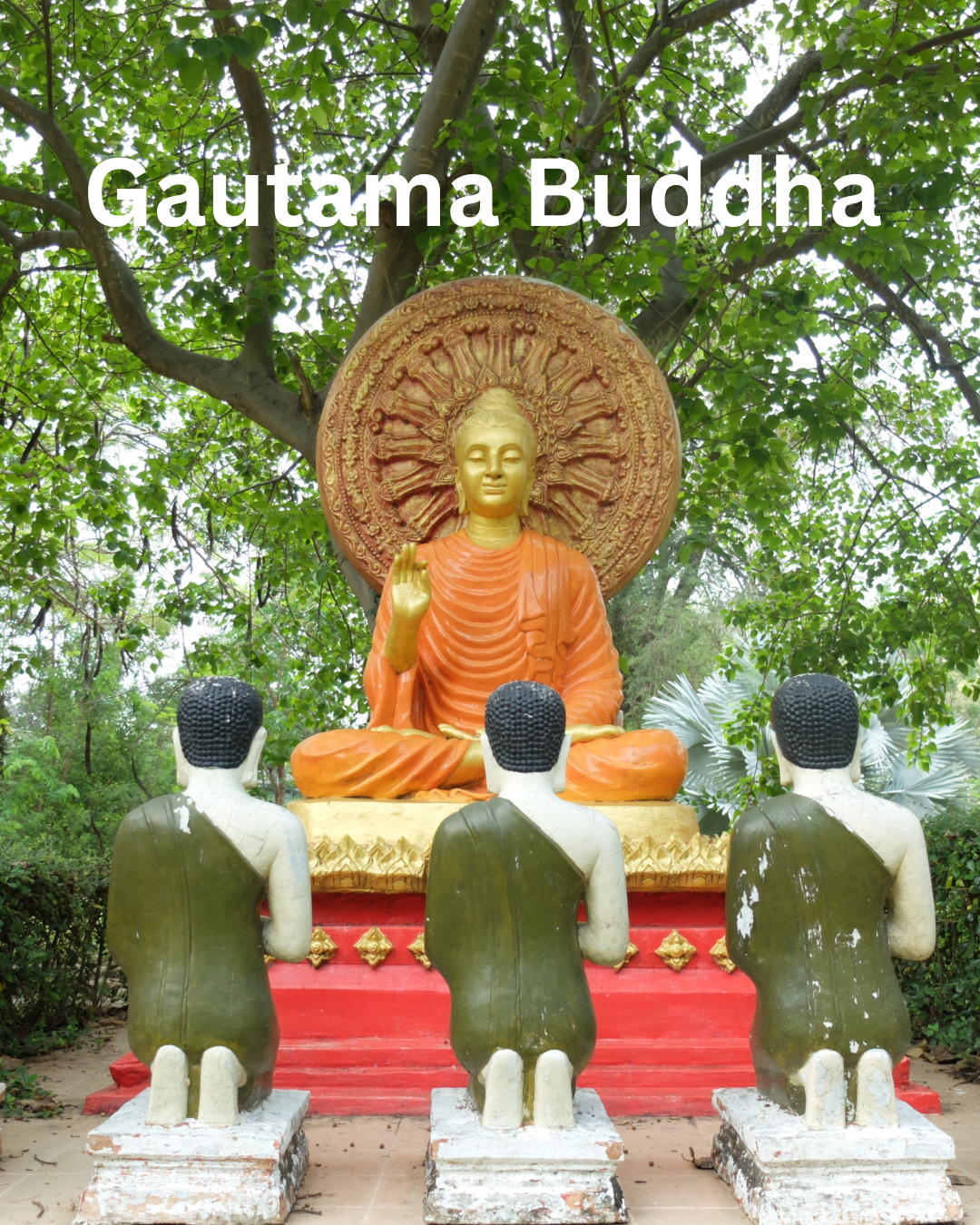
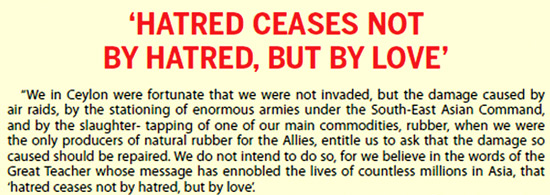
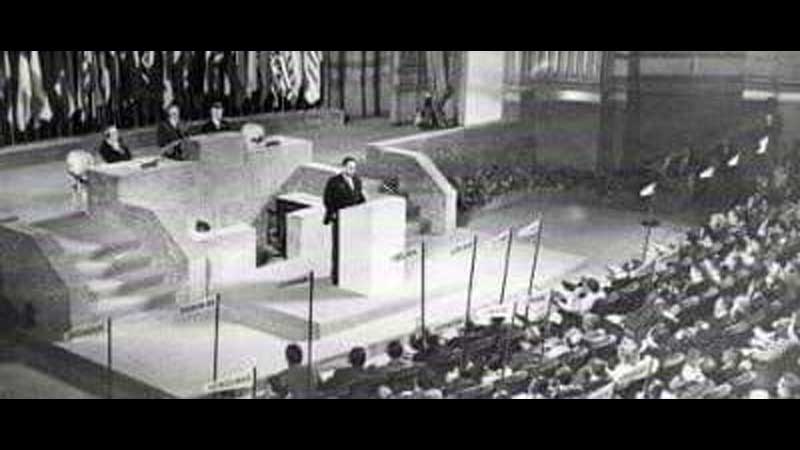
J.R. Jayewardene addressing the San Francisco Peace Conference in 1951
4. The Practice Of Forgiveness Is Our Most Important Contribution To The Healing Of The World (Marianne Williamson)
Forgiveness is a powerful way to heal the world. Forgiveness help people to heal and grow personally by releasing their anger towards those who have hurt them. It helps to improve relationships by promoting healthier communication and reconciliation.
Forgiveness doesn’t mean that you approve or forget about what happened in the past. Instead, it provides a way to let go of negative emotions and move on. It can help us develop empathy and understanding, leading to a more tranquil and cooperative society by forgiving others.

5. If You Cannot Find Peace Within Yourself, You Will Never Find It Anywhere Else (Marvin Gaye)
This saying is misunderstood by many people in the world. What this really means is not that you don’t go out or avoid socializing. This means that no matter where you are or what you are doing, your happiness or peace is within you. It means not to be disturbed by external obstacles or pressures.
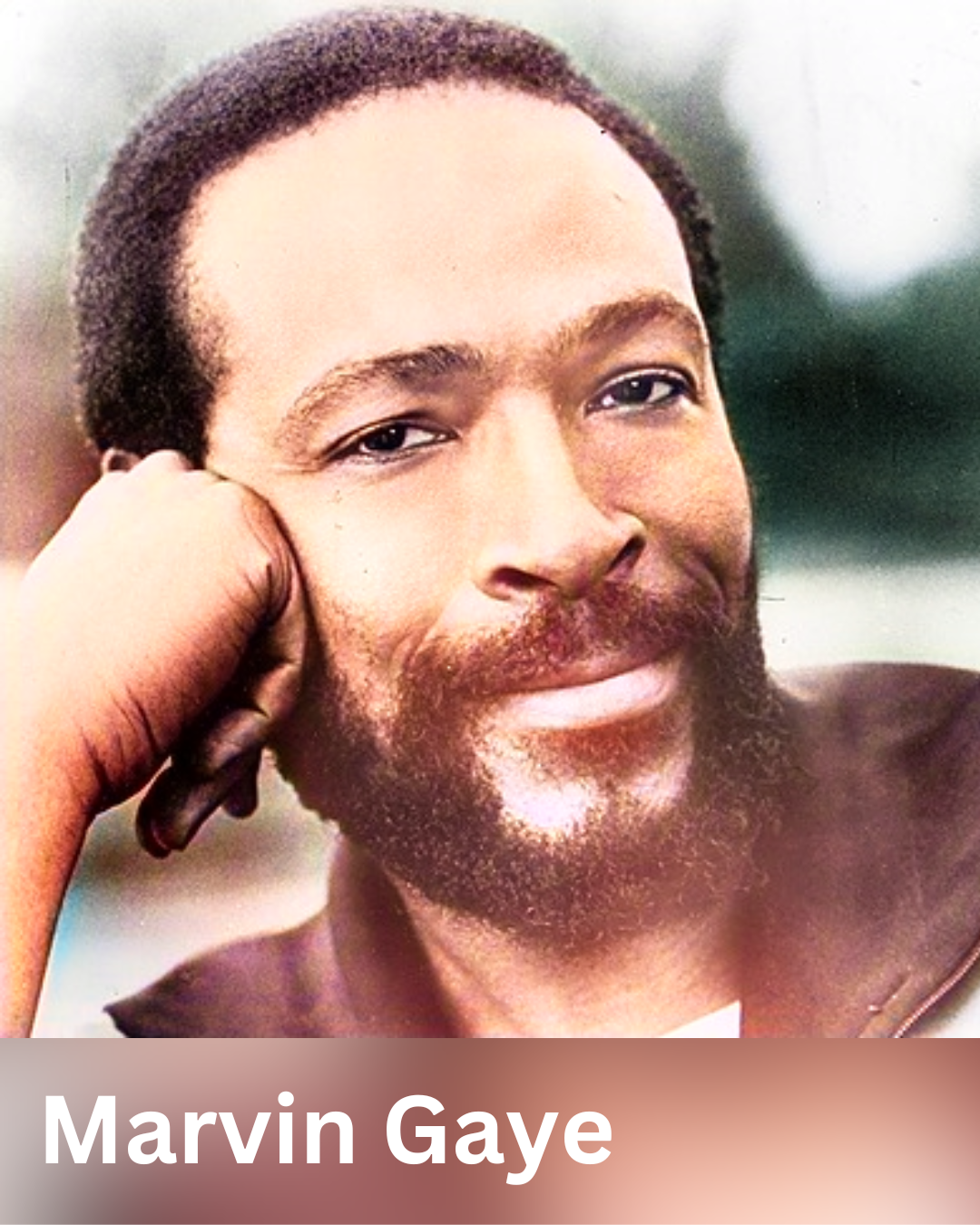
6. Peace Is Not Something You Wish For. It Is Something You Make, Something You Are, Something You Do, And Something You Give Away (John Lennon)
Peace is not something you wish for. It is something you make, something you are, something you do, and something you give away,” encapsulates his belief that peace is an active and transformative process. Lennon emphasized that peace cannot be achieved through mere wishes or passivity but requires individuals to actively pursue and create it. Peace involves embodying it in one’s thoughts, words, and actions, engaging in acts of compassion and nonviolence, and actively resolving conflicts. Additionally, Lennon emphasized that peace should be shared generously with others, creating a ripple effect and inspiring others to do the same. Ultimately, the statement encourages individuals to take personal responsibility for creating peace in their lives and in the world, emphasizing the transformative power of their actions.
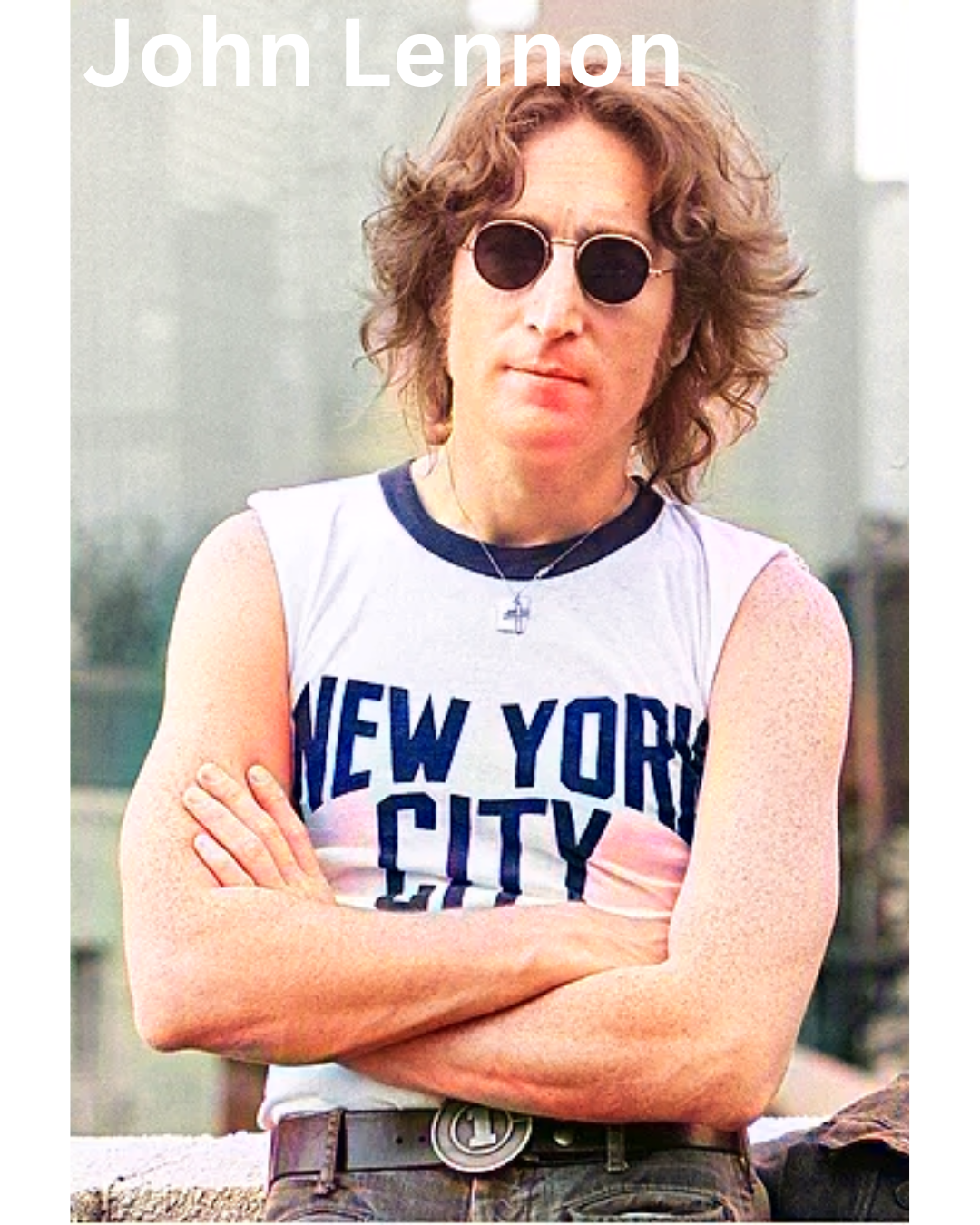
7. If You Don’t Know The Guy On The Other Side Of The World, Love Him Anyway Because He’s Just Like You. He Has The Same Dreams, The Same Hopes And Fears. It’s One World, Pal. We’re All Neighbors (Frank Sinatra)
This is the best quote that I personally follow when dealing with society. There is nothing complicated to explain in this statement because the explanation is in the statement itself.

8. Peace Is Not Absence Of Conflict; It Is The Ability To Handle Conflict By Peaceful Means (President Ronald Reagan)
It involves addressing the root causes of conflicts, resolving disputes through peaceful means, and promoting understanding, empathy, and cooperation among different parties. Cultures are different in several ways, sometimes we have to understand other peoples beliefs. In this broader sense, peace requires proactive efforts to address underlying tensions, social injustices, economic disparities, and other factors that can contribute to conflicts. It involves promoting dialogue, negotiation, and compromise to resolve disagreements and find mutually acceptable solutions.
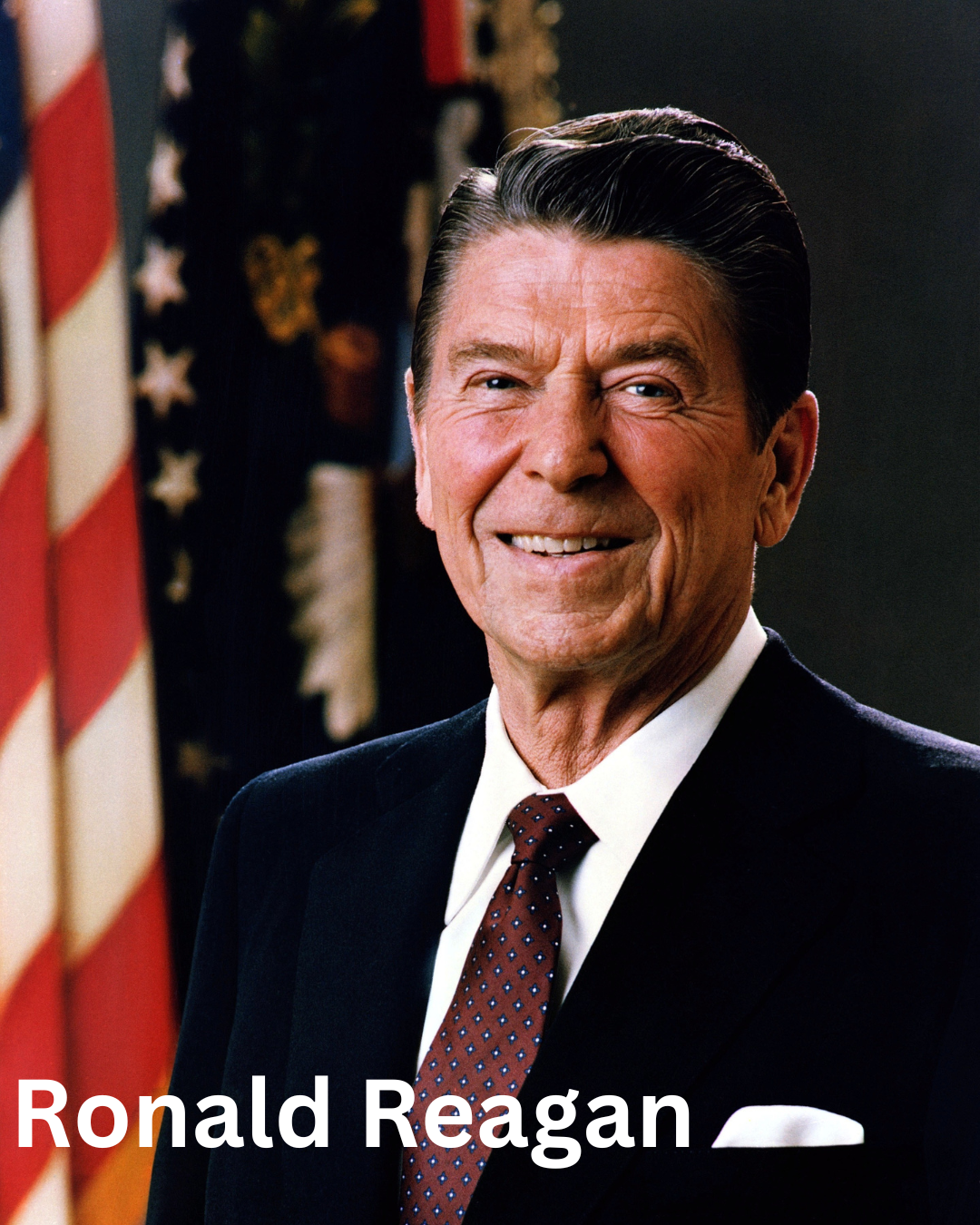
9. Worrying Does Not Take Away Tomorrow’s Troubles. It Takes Away Today’s Peace (Randy Armstrong)
Excessive worry has a negative impact on our present state of mind and well-being. Focusing too much on future problems or uncertainties robs us of the peace and contentment we can find in the present moment. We can choose to let go of unnecessary concerns and focus on what we can control in the present.

10. If There’s No Inner Peace, People Can’t Give It To You. The Husband Can’t Give It To You. Your Children Can’t Give It To You. You Have To Give It To You (Linda Evans)
We can get inner peace by not being bothered by the sorrows, pleasures, good, bad, profits, losses, insults and praises that we have to face in dealing with the external society. Inner peace cannot be obtained from others, such as a spouse or children. It is something that individuals must find within themselves. While relationships and external factors can contribute to our well-being, true inner peace comes from self-awareness, self-acceptance, and self-care. Relying solely on others for inner peace can lead to disappointment, so it is important to take responsibility for cultivating it within ourselves.

11. Everyone Thinks Of Changing The World, But No One Thinks Of Changing Himself (Leo Tolstoy)
I relate another quote here, “It is better to follow it yourself before giving advice to someone else”. Through personal transformation, individuals can become role models and inspire others to follow. When a person reflects in himself the change he wishes to see, he can positively influence those around him. People blame others when they make a mistake, but at other times they make the same mistake.
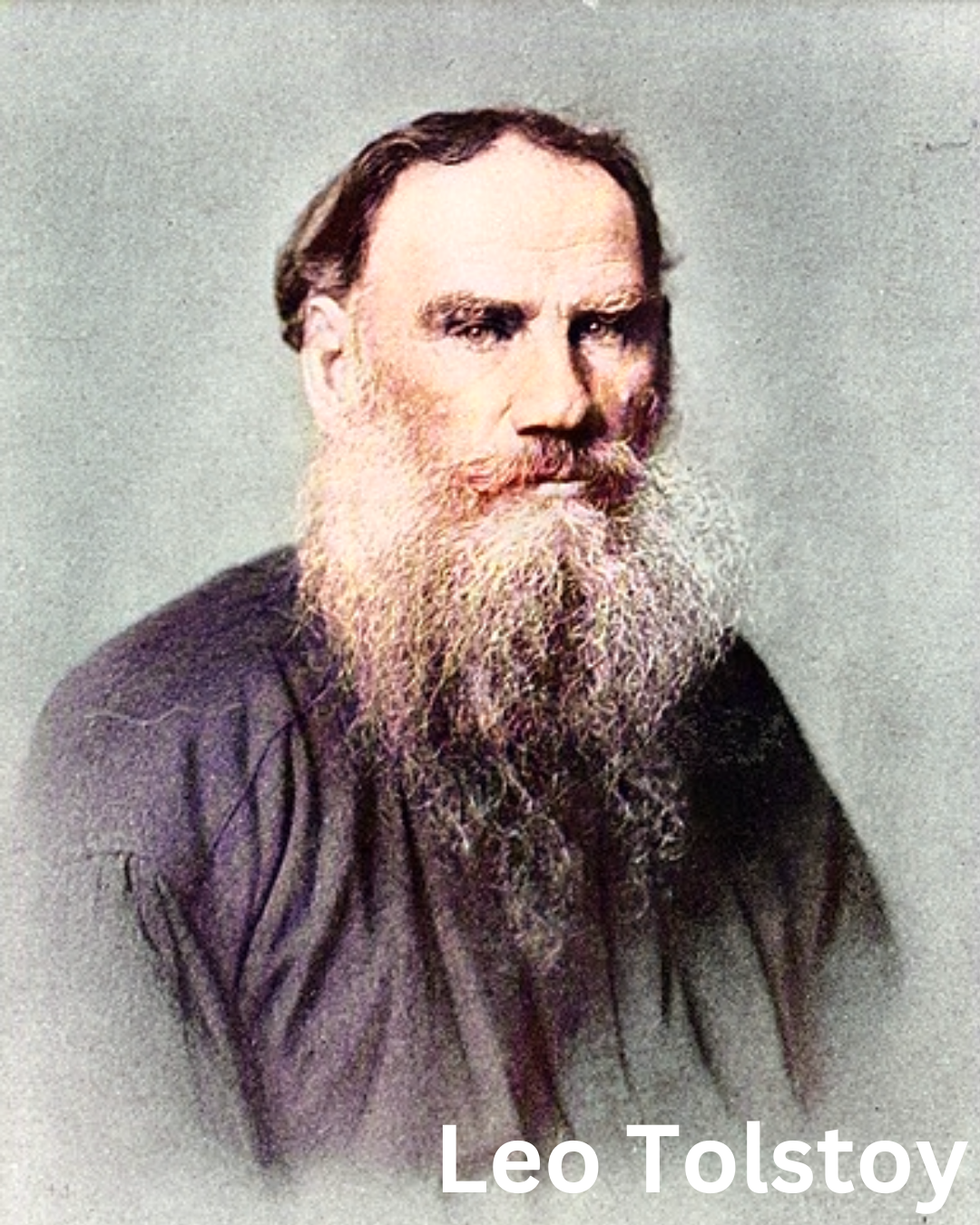
12. Run To The Rescue With Love, And Peace Will Follow (River Phoenix)
According to Universal Law, what you spread out multiplies and spreads around you. Same thing happens when you spread love. By running to the rescue with love, we embrace the notion that compassionate action can create a ripple effect, inspiring others to follow suit and contribute to a more peaceful world.

13. Do Not Look For Happiness Outside Yourself. The Awakened Seek Happiness Inside (Peter Deunov)
This quote emphasizes the importance of finding genuine happiness within oneself rather than relying on external circumstances. It suggests that true and lasting happiness stems from inner fulfillment and self-awareness rather than material possessions or external achievements. The quote encourages individuals to turn inward, cultivating qualities such as self-acceptance, self-love, and mindfulness. By awakening to the understanding that external sources of happiness are temporary and fleeting, individuals can embark on a journey of self-discovery and inner transformation, ultimately finding a deep sense of contentment and joy that remains resilient amidst life’s ups and downs.
